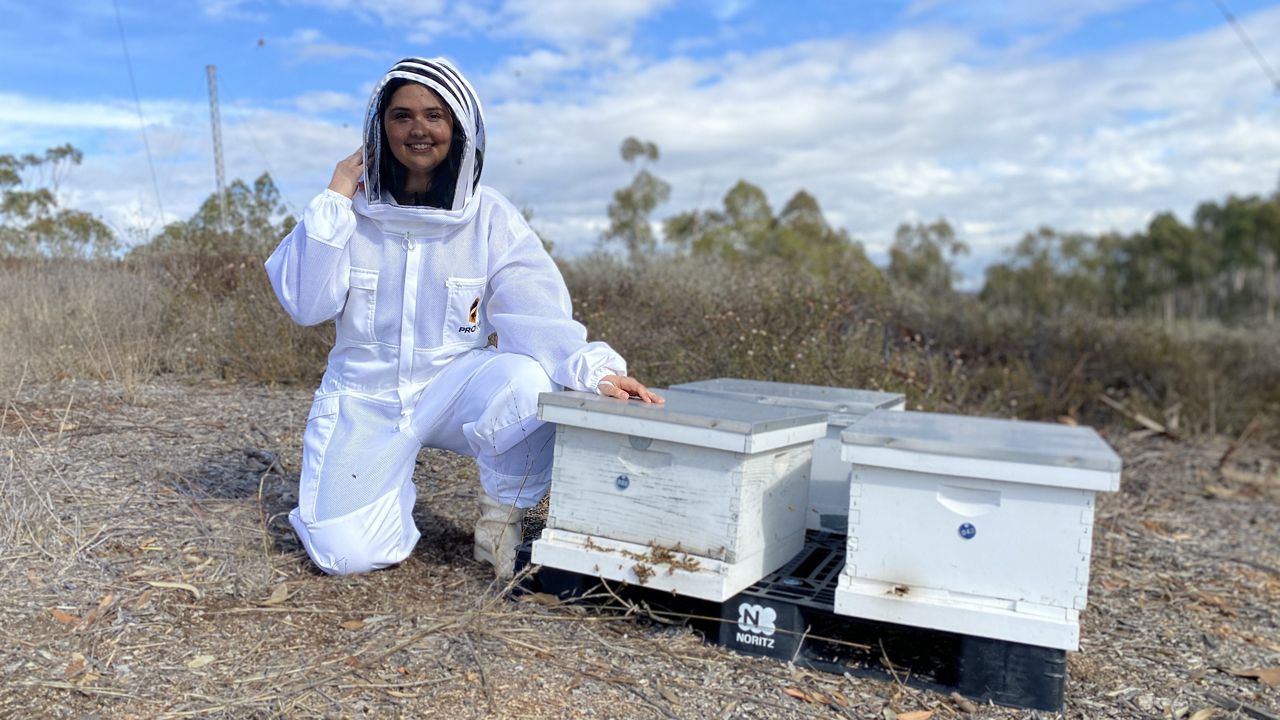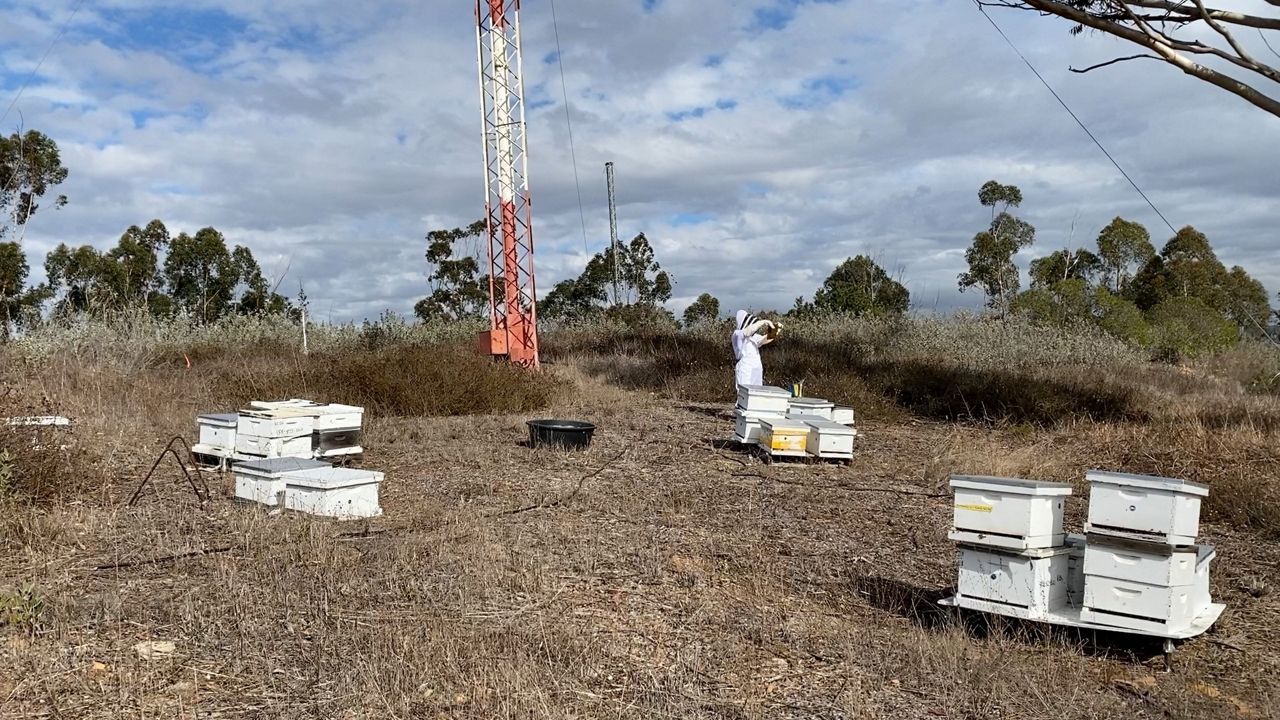SAN DIEGO — New research from UC San Diego shows that feral honeybees are the tough guys in nature.
Putting on a bee suit is the last thing Anngely Leeds ever thought she would look forward to; she was afraid of bees until she started studying them at UCSD.
Leeds spent countless hours of her research time with a colony of feral honeybees in the remote Elliott Chaparral Reserve. She wanted to compare the heartiness of feral honeybees to colonies taken care of by humans.
“These feral colonies live on their own in the wild without any human help,” Leeds said. “We have our feral colonies in these managed hives just so we can work with them easier, but we don’t come out and interact with them that much. We don’t do hive inspections, we don’t treat them for mites. They’re pretty much just wild, feral colonies that live on their own and survive on their own out here on this reserve.”

Leeds found that the feral bees she studied are evidently better adapted to warmer conditions compared to pure European honeybees, and can generally survive extreme swings of hot and cold temperatures better.
According to her study, in this region, managed honeybees are pure European Apis mellifera, while the majority of feral honeybees are genetically admixed with Apis mellifera scutellata, from Africa, which are thought to be limited in their range by cold and to be more tolerant of heat.
“These feral bees are under the pressures of nature, really, and natural selection,” Leeds said. “We don’t really know at this point what is causing them to be more heat tolerant; but if we find that out, maybe we could apply that to managed honeybees and help those hives survive hotter temperatures, especially with climate change.”

James Nieh is a professor of biology at UCSD and was the adviser for Leeds’ study. His lab studies honeybee communication and health and he says San Diego’s biodiversity makes it a great location for bee research.
“Incredibly enough, in San Diego right around here, we have over 600 species of native bees, so that diversity is really impressive,” Nieh said.
According to the USDA, one out of every four bites of food people take is courtesy of bee pollination. Nieh says it’s more important than ever to learn how to protect bees and keep them healthy as the effects of climate change produce more environmental extremes.
“It’s really about protecting pollinators,” he said. “They help sustain our world, the plants in it and everything that depends upon those plants.”
Leeds is excited to show that feral bees are the tough guys in the face of climate change. She hopes her research reminds people of how precious bees are to our planet, even if they can be a little scary at first.
“Treating them with respect I think is the biggest takeaway I got from working with the bees,” she said. “Being able to come out and work with the honeybees was such an amazing time, and it was my favorite part of my project.”



